A licensed massage therapist uses targeted techniques to reduce chronic pain by releasing muscle tension, improving circulation, and calming the nervous system. Learn how massage therapy works, who benefits most, and how to find a qualified professional.
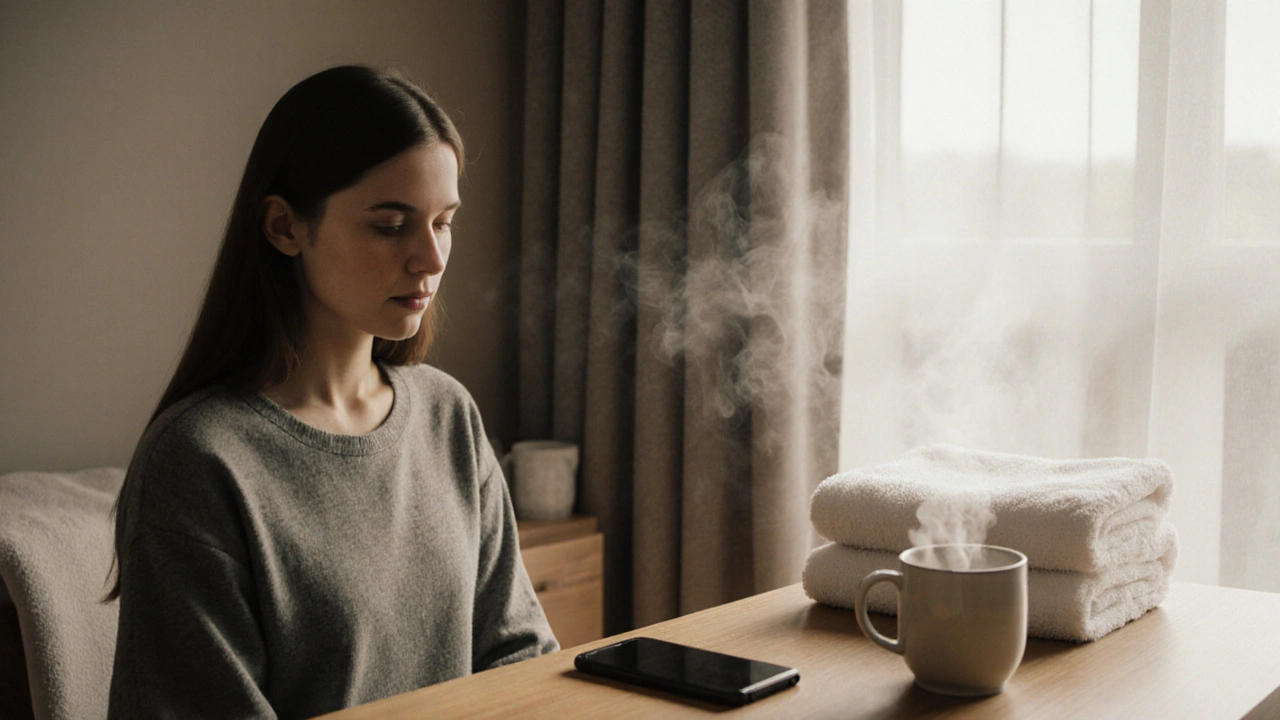
- Created by: Elara Wainwright
- Completed on: 19 Nov 2025
- Categories: Massage Therapy
You’ve booked your massage. You showed up on time. You laid down. But when it’s over, you wonder-was that really worth it? Maybe you felt a little better, sure. But you expected more. Like real relief. Like a reset button for your whole body. The truth? Most people don’t use their time with a massage therapist the way they could. And it’s not because the therapist isn’t good. It’s because you didn’t show up ready to get the most out of it.
What Most People Get Wrong About Massage Therapy
A lot of folks treat massage like a luxury treat-something nice to do when they’ve got extra cash and a free afternoon. But that’s not how it works. Massage therapy isn’t just about feeling good in the moment. It’s a tool. A really powerful one. Think of it like going to the gym. You wouldn’t show up, lie on the bench, and expect to get stronger without lifting weights. Same here. If you just lie there and hope it fixes everything, you’re leaving results on the table.Here’s what most people miss:
- They don’t tell the therapist what’s actually bothering them
- They’re too nervous to speak up during the session
- They rush out the door right after, skipping the cool-down
- They don’t connect their massage to their daily habits
That’s why you need a plan. Not a complicated one. Just a few simple things you can do before, during, and after your session to turn a nice massage into a real recovery tool.
Before Your Session: Prepare Like a Pro
The best massage doesn’t start when your skin touches the oil. It starts hours-or even days-before you walk in.Write down your top three issues. Not vague stuff like “I’m stressed.” Be specific. “My right shoulder hurts when I type.” “My lower back tightens after sitting on the Tube.” “I wake up with headaches every morning.” This isn’t just for the therapist. It’s for you. Writing it down forces you to be honest about what’s really going on.
Hydrate the day before. Your muscles are 70% water. If you’re dehydrated, your tissues are stiff and resistant. Drink water. Not coffee. Not soda. Water. Aim for at least 1.5 litres the day before your appointment. You’ll feel the difference in how deep the therapist can work.
Don’t eat a heavy meal right before. A big lunch or dinner can make you feel sluggish-or worse, nauseous-during the massage. Eat something light 90 minutes before. A banana, a handful of nuts, or a small salad is perfect.
Arrive 10 minutes early. Use that time to breathe. Turn off your phone. Sit quietly. Let your nervous system shift from “go mode” to “rest mode.” If you walk in still buzzing from a Zoom call, your body won’t relax. And if your body doesn’t relax, the therapist can’t work deeply.
During the Session: Speak Up, Let Go
This is where most people blow it. They think silence = good. Wrong.Tell the therapist what feels right. If the pressure is too light, say so. If it’s too hard, say so. If a technique feels weird, ask about it. A good therapist doesn’t mind. They want you to feel safe. They’ve heard it all. “A little more on the left shoulder,” “Could you slow down?” “That spot is too sensitive-can you go around it?” These aren’t requests. They’re instructions. And they make your session 10x more effective.
Don’t hold your breath. When you’re tense, you forget to breathe. And when you stop breathing, your muscles tighten up. Try this: Breathe in through your nose for four counts, hold for two, breathe out through your mouth for six. Do it slowly. Let your belly rise and fall. Your therapist will notice. And your body will start to melt.
Let go of performance. You don’t need to “do” anything during the massage. No smiling. No nodding. No pretending you’re relaxed. If you’re thinking about your to-do list, that’s okay. Just notice it. Then let it go. The goal isn’t to be zen. The goal is to be present. Even if that means you drift off halfway through. That’s not failure. That’s your body finally letting go.
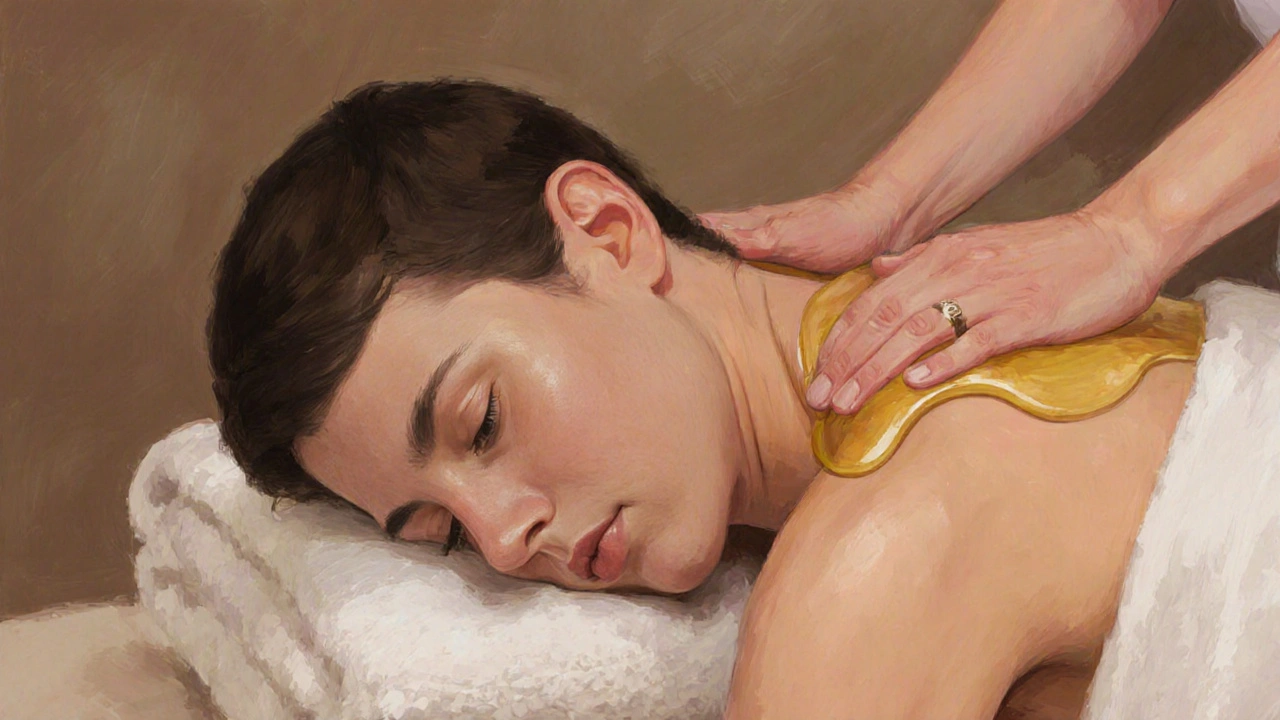
What Happens After the Session? (Most People Skip This)
You’ve had the massage. You’re dressed. You’re standing at the door. You’re tempted to jump back into your day. Don’t.Wait 15 minutes before you leave. Your body is still processing. Your muscles are releasing toxins. Your nervous system is calming down. If you rush out into traffic, cold air, or a loud office, you undo half the work. Sit. Sip water. Look out the window. Let your body settle.
Drink more water. You’ve just flushed out tension and metabolic waste. Water helps your kidneys flush it out. Aim for another 500ml in the next hour. Skip the alcohol. It dehydrates you and can make soreness worse.
Move gently. Don’t go for a run or lift weights right after. Take a slow walk. Stretch your arms overhead. Roll your shoulders. Gentle movement helps your body integrate the changes. If you feel sore the next day, that’s normal. It’s not a bad massage-it’s a deep one.
Write down what you felt. Did your neck loosen up? Did your headaches fade? Did you sleep better? Jot it down. Not for the therapist. For you. In a week, you’ll look back and see patterns. Maybe your headaches only go away after a massage on Tuesdays. That’s data. And data helps you plan your next session.
How Often Should You See a Massage Therapist?
There’s no magic number. But here’s what works for most people in London:- If you’re in chronic pain or have a desk job: Every 2-3 weeks
- If you’re active (runner, gym-goer, dancer): Every 4-6 weeks
- If you’re just maintaining: Every 6-8 weeks
Don’t wait until you’re in agony to book. That’s like waiting until your car’s engine is smoking before changing the oil. Schedule it like you would a dentist appointment. Consistency beats intensity every time.
What to Look for in a London Massage Therapist
Not all massage therapists are the same. In London, you’ve got options-from high-end spas to quiet home studios. Here’s what to check:- Qualifications: Look for someone registered with a recognised body like the Complementary and Natural Healthcare Council (CNHC) or the Federation of Holistic Therapists (FHT).
- Specialisation: Do they focus on sports, pregnancy, chronic pain, or relaxation? Match their expertise to your goal.
- Communication: Do they ask questions before you lie down? Do they explain what they’re doing? If they just start massaging without talking, walk away.
- Environment: Clean, quiet, calm. No loud music. No distractions. If it feels like a retail space, it probably is.
Read reviews-but not the five-star ones. Look for the three-star reviews. They tell you the truth. “Great therapist, but the room was cold.” “Took time to listen.” That’s gold.

Massage vs. Other Recovery Tools in London
| Method | Best For | Frequency | Cost (per session) | How Long Results Last |
|---|---|---|---|---|
| Massage Therapy | Chronic tension, stress, muscle knots, circulation | Every 2-6 weeks | £50-£90 | 3-7 days |
| Physiotherapy | Injury rehab, joint mobility, post-surgery | Weekly (short-term) | £60-£120 | Weeks to months |
| Acupuncture | Headaches, nerve pain, sleep issues | Weekly or biweekly | £45-£80 | 2-5 days |
| Yoga/Stretching | Flexibility, posture, mental calm | 2-5 times/week | Free-£20 | Hours to days |
| Self-Massage Tools (foam roller, massage gun) | Maintenance, quick relief | Daily | £20-£150 (one-time) | Hours |
Massage isn’t a replacement for physio if you’ve got an injury. But for everyday stiffness? It’s cheaper, faster, and way more relaxing than a gym session.
Frequently Asked Questions
Do I need to undress completely for a massage?
No. You undress to your comfort level. Most therapists use draping techniques-meaning only the part being worked on is exposed. You’ll be covered with a towel the whole time. If you’re uncomfortable, speak up. Your privacy is non-negotiable.
Can a massage therapist fix my posture?
Not directly. But they can release the tight muscles pulling you out of alignment-like your chest, hips, or neck. Once those muscles relax, your body naturally finds better posture. Combine massage with gentle stretches or yoga, and you’ll see lasting change.
Is it normal to feel sore after a massage?
Yes, especially after a deep tissue or sports massage. It’s like a workout for your muscles. Drink water, move gently, and rest. The soreness usually fades in 24-48 hours. If it lasts longer or feels sharp, contact your therapist.
What if I fall asleep during the massage?
That’s actually a good sign. It means your body trusted the space enough to let go. Most therapists see it as a win. They’ll work around you quietly and won’t wake you unless they need to check in.
Can I get a massage if I’m pregnant?
Yes-but only with a therapist trained in prenatal massage. They’ll use special positioning and avoid certain pressure points. Always tell them you’re pregnant before they start. Many London clinics offer dedicated prenatal sessions.
How do I know if my massage therapist is good?
A good therapist listens more than they talk. They ask about your goals, adjust pressure based on your feedback, and never rush. They also don’t promise miracles. If they say, “One session will fix your back pain,” walk away. Real healing takes time and consistency.
Ready to Get More From Your Next Massage?
You don’t need to spend more money. You don’t need to find the fanciest spa in Mayfair. You just need to show up differently. Write down what’s bothering you. Breathe. Speak up. Drink water. Let yourself rest. That’s it.The next time you lie down on that table, you won’t just be getting a massage. You’ll be reclaiming your body. And that’s worth more than any price tag.
Massage therapy isn't just for relaxation-it's a critical tool for athletes to recover faster, prevent injuries, and perform better. Learn why every serious athlete needs a massage therapist in their corner.
Discover how massage therapy in London helps reduce stress, improve sleep, and relieve chronic tension. Learn about types, pricing, and how to find the best therapists near you.

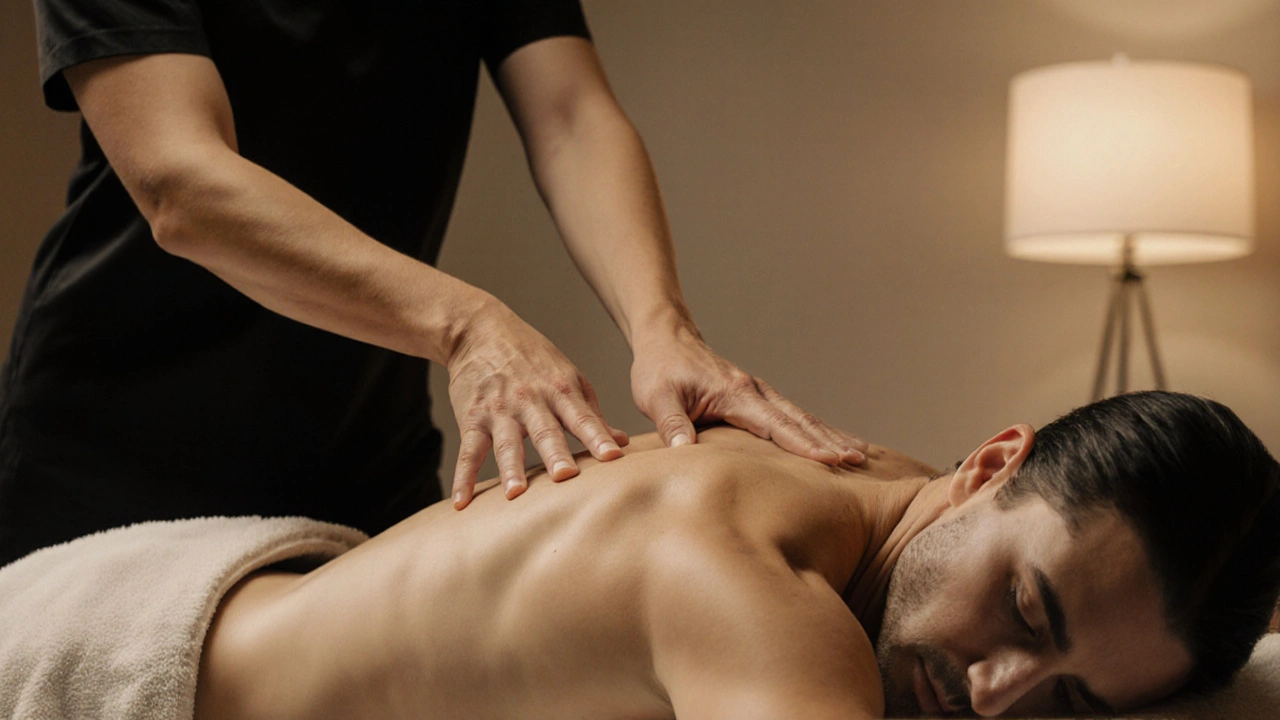
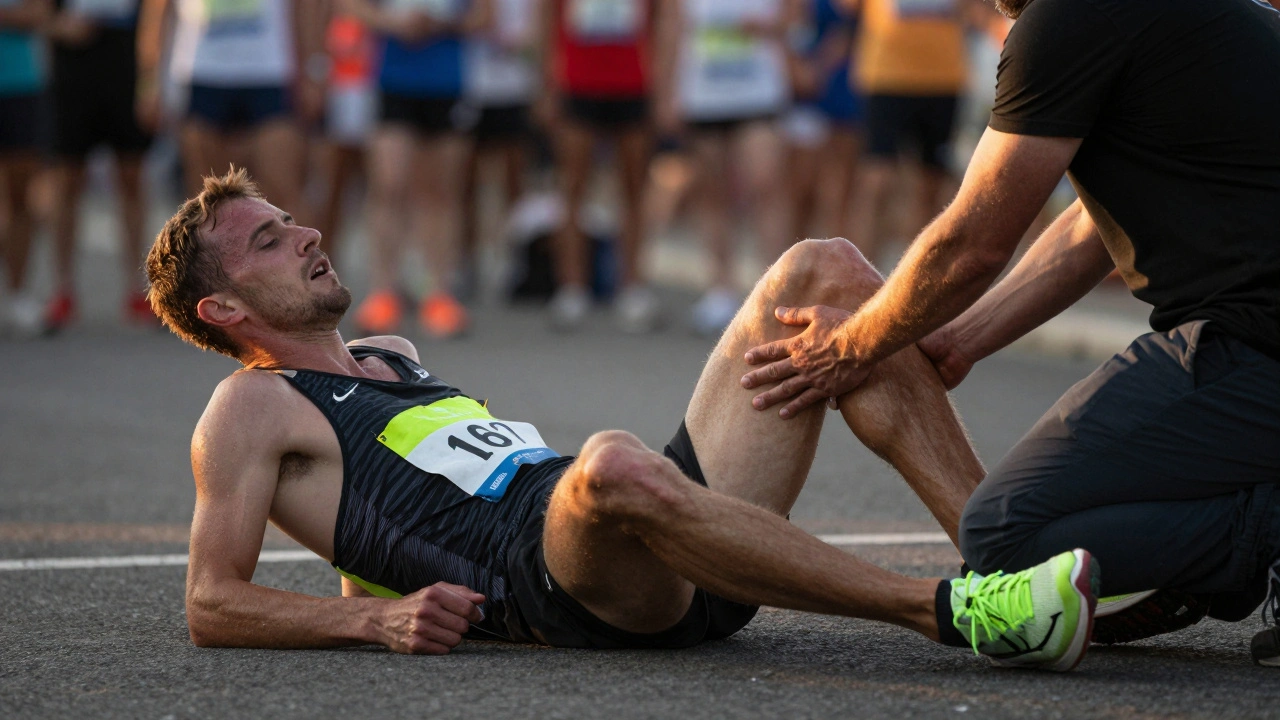
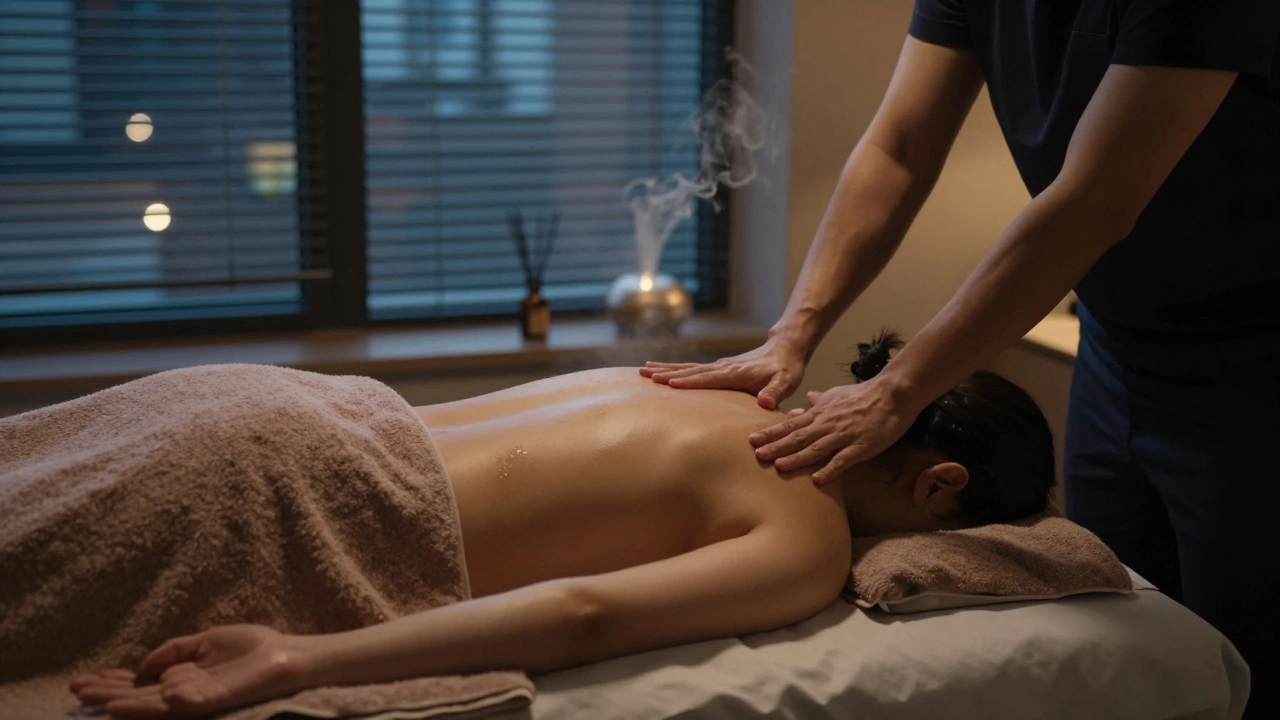
Juhi Edwin
November 20, 2025 AT 17:05I used to think massage was just a fancy bubble bath with hands, but this changed everything. I started writing down my pain points before sessions-turns out my left hip only hurts when I’m stressed about deadlines. Who knew? Now I drink water like it’s my job. And I actually sit there for 15 minutes after. No phone. Just breathing. My therapist noticed. Said I’m ‘a different client now.’ Best compliment I’ve ever gotten.
Elizabeth Guice
November 20, 2025 AT 23:45Let me tell you something profound: massage isn’t about the therapist fixing you. It’s about you finally letting go of the story you’ve been telling yourself about your body being broken. You walk in thinking you need to be ‘fixed,’ but what you really need is permission to be soft. To be still. To admit you’re tired. That’s the real therapy. The hands? Just the vehicle. The quiet? That’s the miracle. And if you rush out after? You’re not rejecting the massage-you’re rejecting yourself. Again. Stop doing that.
Dan Helmick
November 21, 2025 AT 01:23Oh wow. A whole essay on how to ‘optimize’ your massage like it’s a corporate KPI dashboard. Next they’ll tell you to schedule your tears in 15-minute increments with a follow-up CRM reminder. ‘Dear Client, your shoulder tension is due for a quarterly review. Please hydrate and submit a 300-word reflection on your somatic experience by Friday.’ I once told my therapist I had a headache. She pressed my temples for 30 seconds and said, ‘Maybe stop yelling at your laptop.’ I cried. Then I booked again. Sometimes the best therapy is silence… and a therapist who doesn’t need a PowerPoint.
Rutuja Patil
November 22, 2025 AT 07:03lol u think ur so smart writing down ur 'top 3 issues' like ur a therapist now?? i just lie down and let it happen. why overthink? i mean i dont even know what 'dorsal fascia' means but my back feels good after. also i dont drink water before because i hate it. its boring. and i always leave right after. my dog waits for me. he's my real therapist. he licks my face. u cant do that with a massage table. #relatable #sarcasm #notallmassage
Laura Swan
November 23, 2025 AT 18:13Wow. So now we’re turning massage into a 12-step program? Next thing you know, they’ll make us journal our fascia. This is what happens when you give Americans a $90 table and a thesaurus. Back home in Ohio, we just lay down, take a nap, and call it a day. No water logs. No breathing schedules. No ‘data.’ Just muscle and silence. You don’t need a spreadsheet to feel better. You need a break. And maybe a nap. And definitely less yoga.
Michelle Avendano
November 25, 2025 AT 04:30I cried during my last session because the therapist asked if I was okay and I realized I hadn't been okay in years. I didn't say anything. I just let her press into my shoulders and I let go. I didn't write anything down. I didn't hydrate. I just showed up broken and she held me without words. That's all I needed. That's all anyone needs. Sometimes the deepest healing is the one you don't plan for.
jasmine zeindler
November 26, 2025 AT 00:34OMG I literally just booked a 90-min deep tissue with a CNHC-certified therapist who specializes in myofascial release and uses organic cold-pressed coconut oil infused with lavender and Himalayan salt 🌿✨ and I only drink alkaline water with lemon and cayenne before and after!! I even wrote a haiku about my sacrum! My therapist said I'm her 'most enlightened client' and gave me a free aromatherapy eye pillow!! 🥹💖 #MassageTherapyIsSpiritual #LondonWellnessElite
Eugene Stanley
November 26, 2025 AT 15:18Just wanted to say… I read all of this. And honestly? I think it’s great. But I also think the person who just lies down, doesn’t say anything, and leaves feeling a little lighter… they’re doing just fine too. Not everyone needs a plan. Sometimes the body just knows. And that’s okay. No pressure. No spreadsheets. Just quiet. That’s healing too.
Thandi Mothupi
November 27, 2025 AT 12:19u all are overthinking this. i just go. i dont care about water or breathing or writing stuff down. i just want my back to stop screaming. also my therapist is from nigeria and she uses her elbows and i love it. she says 'you carry your life in your shoulders' and i just nod and cry. she dont need no list. she sees me. thats all. #naijahealing #notallmassage